Search
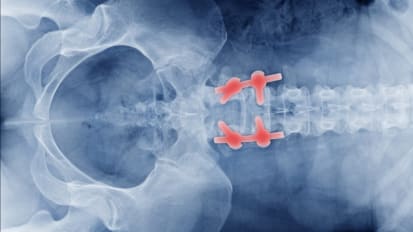 Video
Video
Complex Spine Surgery: Secrets of Successful Closure
Dr. Scott Hansen discusses techniques, options and strategies to stabilize soft tissues and prevent post-op wound complications, even in the most challenging cases. Document
Document
2019-20 Referral Services Guide
UCSF Health is recognized throughout the world for innovative treatments, advanced technology, collaboration among clinicians and scientists, and a highly compassionate team of patient care providers. Document
Document
Awake Spine Surgery
Shorter surgeries result in decreased lengths of stay, faster recovery times and less reliance on narcotics Video
Video
Minimally Invasive TLIF; Techniques and Outcomes
Aaron J. Clark, MD, PhD, describes the minimally invasive approaches of transforaminal lumbar interbody fusion (TLIF) and its advantages over open TLIF surgery including the benefits for the obese and elderly, fewer complications and less pain.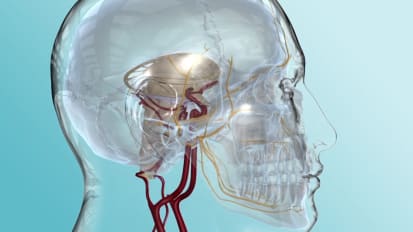 Video
Video
Trigeminal Neuralgia Symptoms and Treatment Options
Edward Chang, MD, describes the symptoms of trigeminal neuralgia, a very serious pain disorder that affects the face and is usually caused by a blood vessel that compresses against the trigeminal nerve. Video
Video
Cervical and Thoracolumbar Spinal Deformity Treatment Strategies, Part I: Historic Review
Lee A. Tan, MD, provides a review of past and current treatment strategies for spinal deformities, including breakthroughs such as Intraoperative neurophysiological monitoring. Video
Video
Cervical and Thoracolumbar Spinal Deformity Treatment Strategies, Part II: Radiographic Parameters
Dr. Lee Tan reviews cervical deformity radiographic parameters, including cervical lordosis, C2-7 sagittal vertical axis, chin-brow vertical angle, T1 slope, thoracic inlet angle and neck tilt.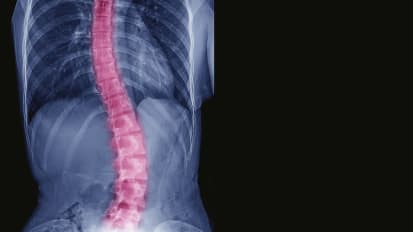 Video
Video
Cervical and Thoracolumbar Spinal Deformity Treatment Strategies, Part III: Case Examples
Lee Tan, MD discusses three recent cervical spine and thoracolumbar spinal deformity cases and the surgical interventions used to treat these diverse conditions. Document
Document
Minimally Invasive Skull Base Surgery Center
The role of minimally invasive skull base surgery is expanding in the management and treatment of benign and malignant tumors of the paranasal sinuses, skull base and intracranial compartment.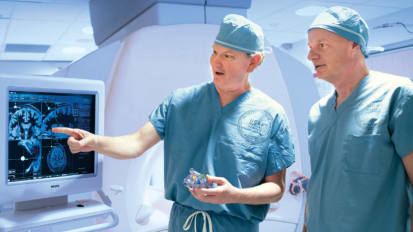 Document
Document
Neurology and Neurological Surgery Services
Our internationally renowned centers, clinics and programs deliver compassionate clinical care while accelerating advances in the diagnosis, treatment and prevention of complex disorders of the brain, spine and peripheral nervous system. Video
Video
Awake Spinal Surgery Case Study
Praveen Mummaneni, MD, presents a lumbar spondylolisthesis case study and discusses the short- and long-term surgical outcomes for minimally invasive and open transforaminal lumbar interbody fusions.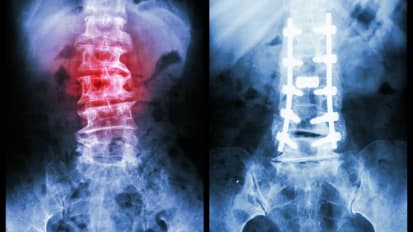 Video
Video
Awake Spinal Surgery Treatment Options
Praveen Mummaneni, MD, provides an overview of lumbar spondylolisthesis, the advantages and disadvantages of fusion and non-fusion treatment, and outcome data for specific populations, including female, elderly and obese patients.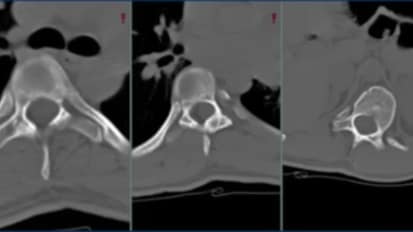 Video
Video
Minimally Invasive Spine Surgery: State of the Art and Future Directions
A neurosurgeon who specializes in spines describes the technique and benefits of state-of-the-art minimally invasive spine surgery (MISS), presenting six case studies that show when MISS is a great option and when open surgery is required.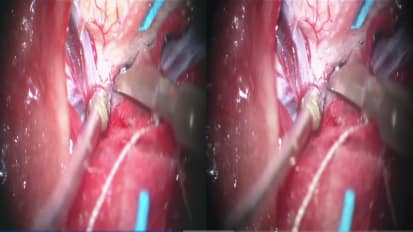 Video
Video
Focused Transsylvian Approach for a Left Posterior Insular Cavernous Malformation: 3D Operative Video
Watch and hear narration for a complete resection of a left posterior insular cavernous malformation measuring 1.2 centimeters, using a focused transsylvian approach. You’ll see 3D pre- and postoperative images and hear about the patient’s outcome.

